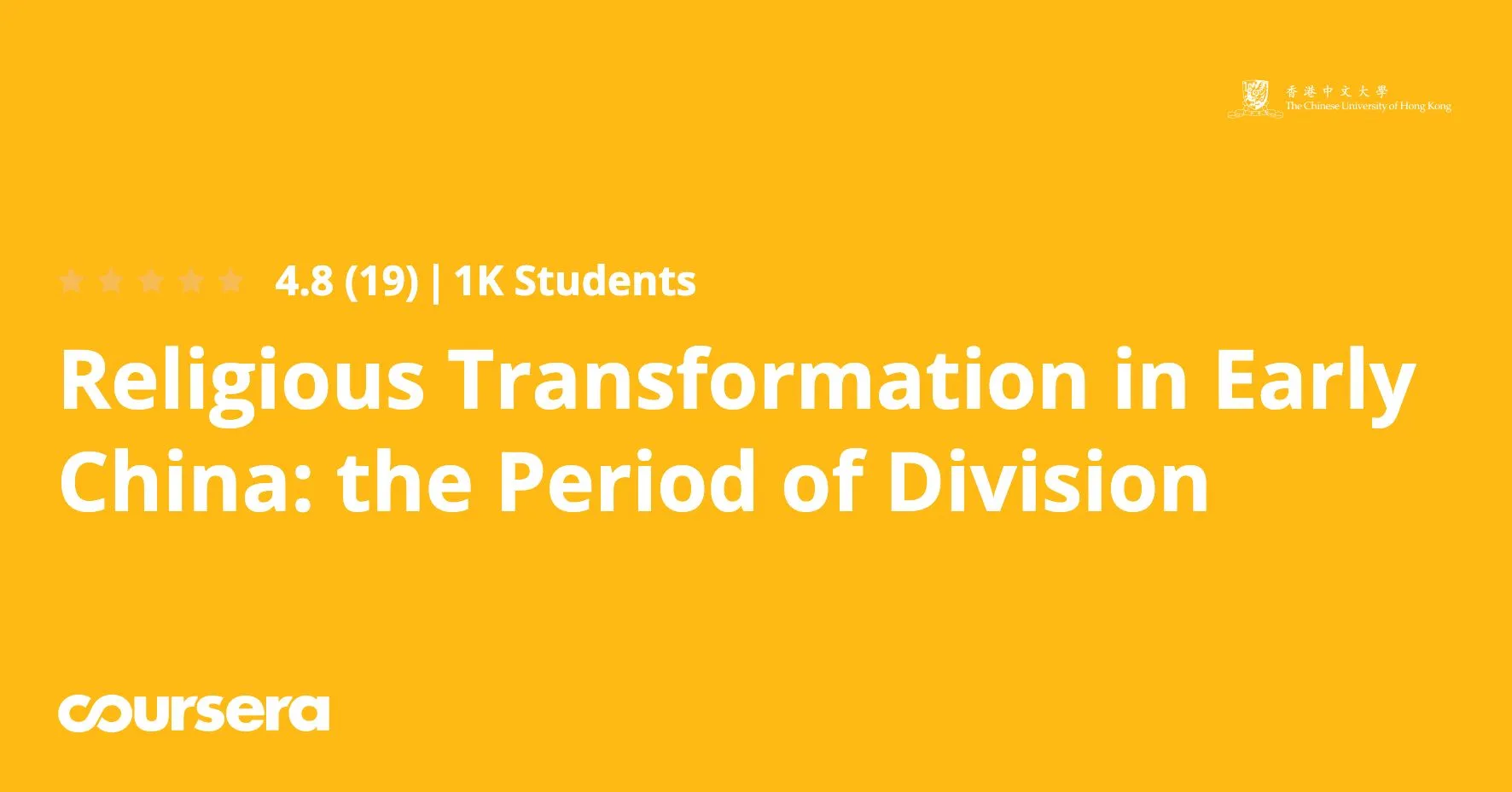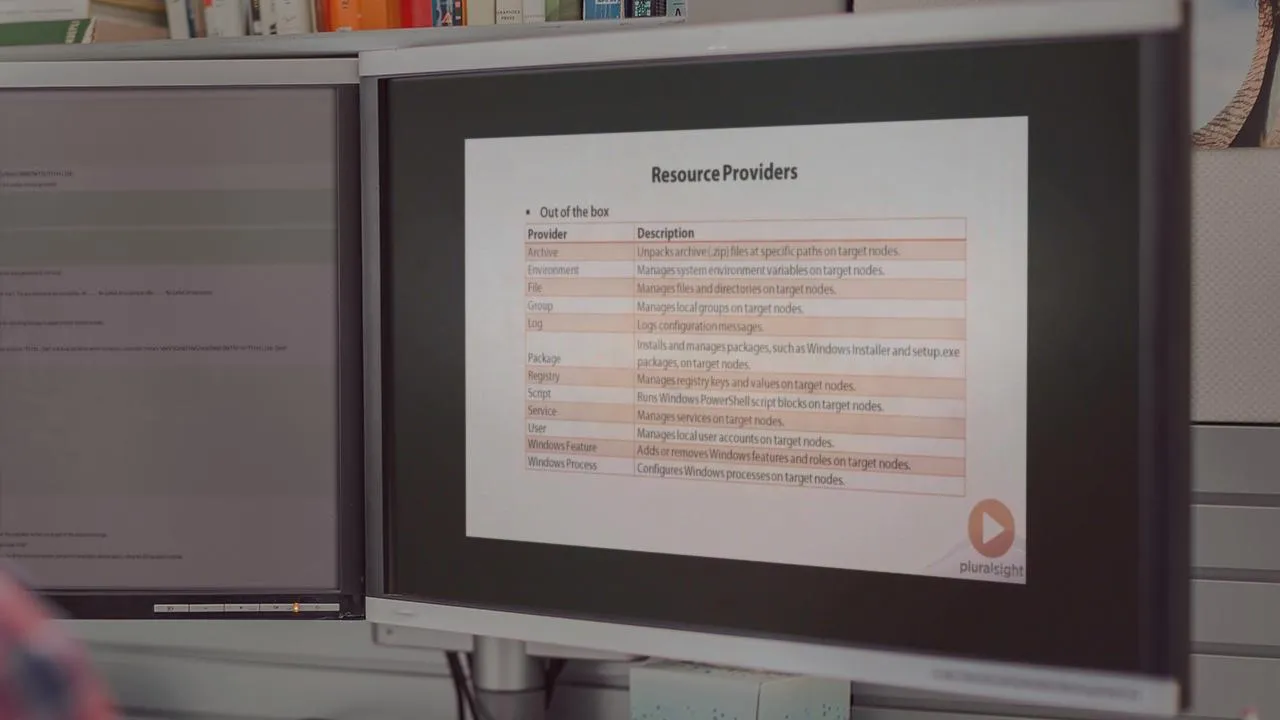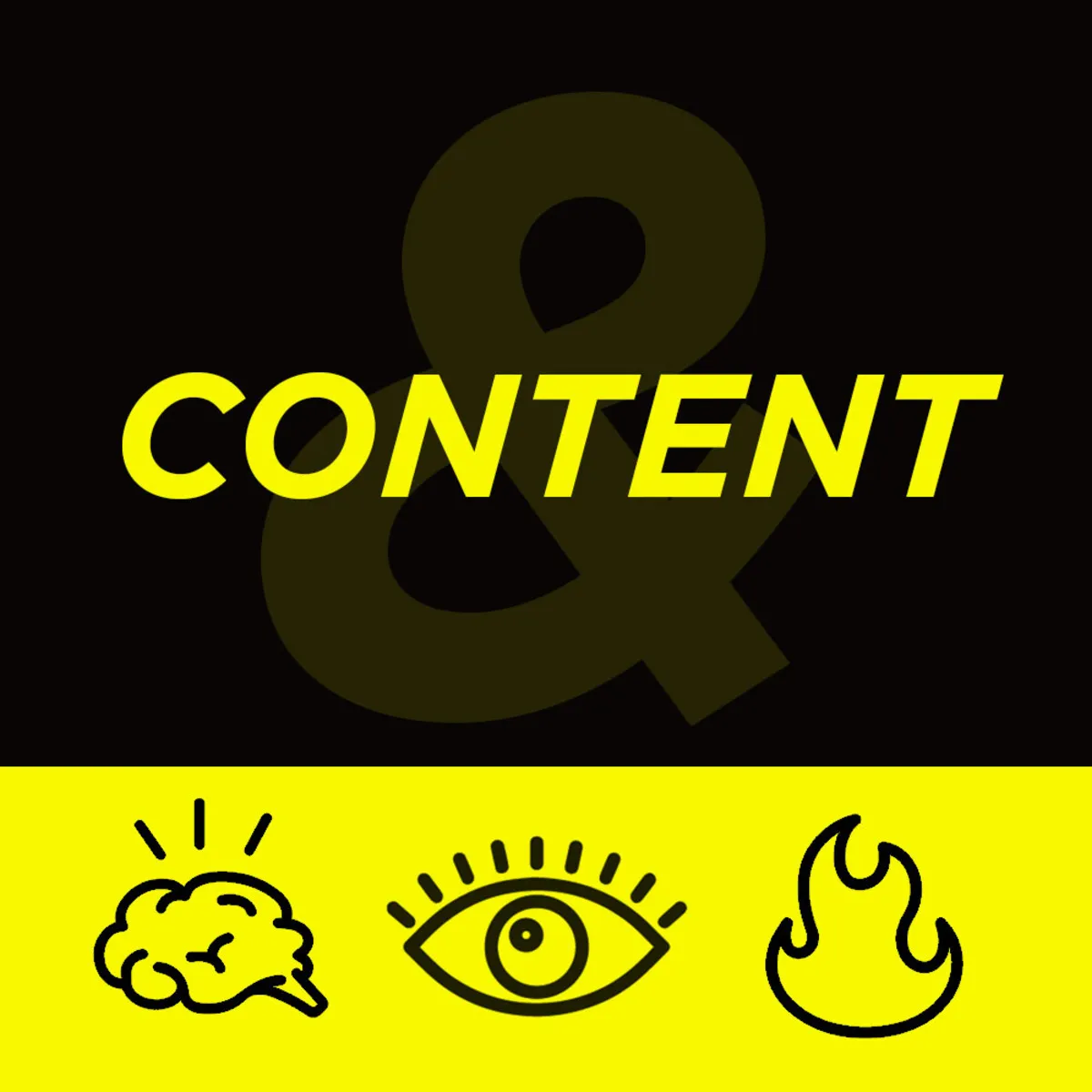
Religious Transformation in Early China: the Period of Division 
This four-course sequence examines the religious transformation of early China, from the period of division to the emergence of a unified empire. It takes a multi-disciplinary approach to the study of Chinese cultural history, exploring philosophical, bureaucratic, and economic modes of rationality. ▼
ADVERTISEMENT
Course Feature
![]() Cost:
Cost:
Free
![]() Provider:
Provider:
Coursera
![]() Certificate:
Certificate:
No Information
![]() Language:
Language:
English
![]() Start Date:
Start Date:
Self Paced
Course Overview
❗The content presented here is sourced directly from Coursera platform. For comprehensive course details, including enrollment information, simply click on the 'Go to class' link on our website.
Updated in [March 06th, 2023]
This four-course sequence, Religious Transformation in Early China: the Period of Division, will provide an in-depth exploration of the period of division in Chinese history, from the fall of the Han dynasty in 220 CE to the reunification of China under the Sui dynasty in 589 CE. Through a multi-disciplinary approach, students will gain an understanding of the philosophical, bureaucratic, and economic modes of rationality that shaped the period, as well as the cultural facts and artifacts—thought, literature, and ritual—that were associated with them. The courses will also examine the social, political, and economic systems that changed during this period, and how they impacted the religious transformation of early China. By the end of the sequence, students will have a comprehensive understanding of the religious transformation of early China and the period of division.
[Applications]
The application of this course could include further research into the period of division in early China, such as exploring the impact of the various modes of rationality on the development of Chinese culture. Additionally, students could use the course to gain a better understanding of the relationship between culture and society, and how this relationship has changed over time. Finally, the course could be used to gain a better understanding of the various philosophical, bureaucratic, and economic systems that have shaped Chinese culture.
[Career Paths]
1. Religious Studies Professor: Religious Studies Professors specialize in the study of religion, its history, and its impact on society. They often teach courses on the history of religions, religious texts, and religious practices. They also conduct research on religious topics and publish their findings in academic journals. As the world becomes increasingly interconnected, the demand for Religious Studies Professors is expected to grow, as more people seek to understand the role of religion in their lives and in the world.
2. Religious Historian: Religious Historians specialize in the study of religious history, focusing on the development of religious beliefs and practices over time. They often research and write about the history of specific religions, such as Christianity, Islam, or Buddhism. They also analyze the impact of religion on society and culture, and may work in museums, libraries, or archives. As the world becomes increasingly interconnected, the demand for Religious Historians is expected to grow, as more people seek to understand the role of religion in their lives and in the world.
3. Religious Education Teacher: Religious Education Teachers specialize in teaching religious studies to students of all ages. They often teach courses on the history of religions, religious texts, and religious practices. They also help students develop an understanding of the role of religion in their lives and in the world. As the world becomes increasingly interconnected, the demand for Religious Education Teachers is expected to grow, as more people seek to understand the role of religion in their lives and in the world.
4. Religious Counselor: Religious Counselors specialize in providing spiritual guidance and counseling to individuals and families. They often work with individuals to help them understand their religious beliefs and practices, and to help them make decisions based on their faith. As the world becomes increasingly interconnected, the demand for Religious Counselors is expected to grow, as more people seek to understand the role of religion in their lives and in the world.
[Education Paths]
1. Bachelor of Arts in Chinese Studies: This degree program provides students with a comprehensive understanding of Chinese culture, history, and language. Students will gain an understanding of the development of Chinese culture and its impact on the world today. They will also learn about the various aspects of Chinese society, including politics, economics, and religion. Additionally, students will gain an understanding of the Chinese language and its various dialects.
2. Master of Arts in Chinese History: This degree program provides students with an in-depth understanding of Chinese history, from the ancient period to the present day. Students will gain an understanding of the various dynasties and their impact on Chinese culture and society. They will also learn about the various aspects of Chinese culture, including literature, art, and religion. Additionally, students will gain an understanding of the various political and economic systems that have shaped Chinese history.
3. Doctor of Philosophy in Chinese Religion: This degree program provides students with an in-depth understanding of Chinese religious beliefs and practices. Students will gain an understanding of the various religious traditions in China, including Confucianism, Daoism, and Buddhism. They will also learn about the various aspects of Chinese religious life, including rituals, festivals, and temples. Additionally, students will gain an understanding of the various religious transformations that have taken place in China over the centuries.
4. Master of Arts in Chinese Language and Culture: This degree program provides students with an in-depth understanding of Chinese language and culture. Students will gain an understanding of the various aspects of Chinese language, including grammar, pronunciation, and writing. They will also learn about the various aspects of Chinese culture, including literature, art, and religion. Additionally, students will gain an understanding of the various cultural transformations that have taken place in China over the centuries.
Pros & Cons

Excellent presentation skills by the professor.

Clear and concise explanation of old Chinese documents.

Proper understanding of the role of religions in the Period Of Division.

Concise MOOC course oriented to the history of religion.

Well organized and easy to appreciate.

Quizzes were arbitrary at times.

Knowledge of Chinese language helpful.

Too many quizzes.

Fill in the blank questions require precise wording.

Questions on names, dates.
Course Provider

Provider Coursera's Stats at AZClass
Discussion and Reviews
0.0 (Based on 0 reviews)
Explore Similar Online Courses

iPad Surface Design in Affinity Designer: Vectors Textures Artboards and Repeat Patterns

Windows PowerShell Desired State Configuration Fundamentals

Python for Informatics: Exploring Information

Social Network Analysis

Introduction to Systematic Review and Meta-Analysis

The Analytics Edge

DCO042 - Python For Informatics

Causal Diagrams: Draw Your Assumptions Before Your Conclusions

Whole genome sequencing of bacterial genomes - tools and applications

Curanderismo: Traditional Healing Using Plants

Storytelling in Branding and Content Marketing


Start your review of Religious Transformation in Early China: the Period of Division